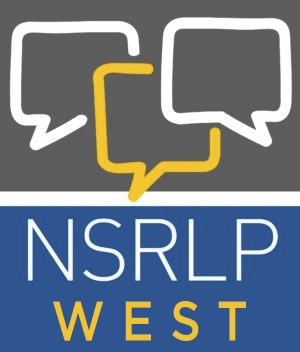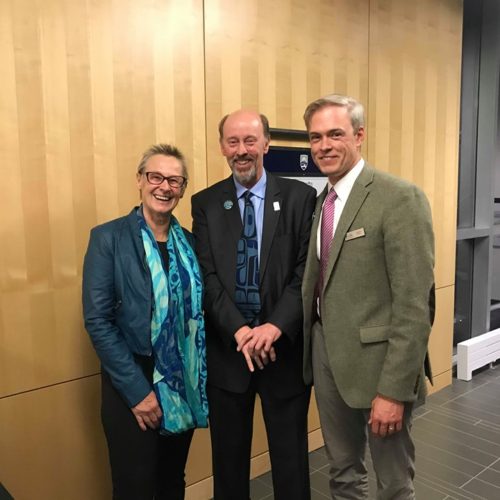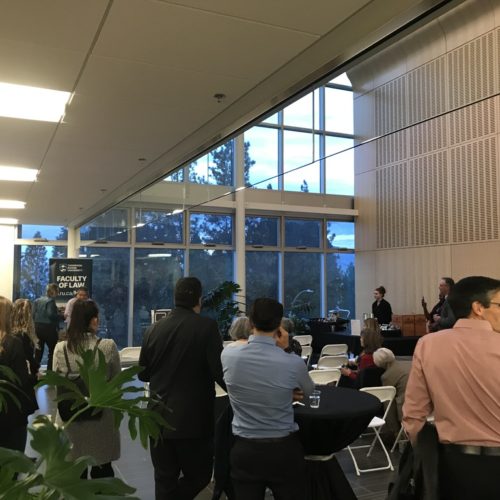 NSRLP West is the first partnership between the NSRLP and another academic institution. While the NSRLP has been national in scope since the beginning, the development of NSRLP West will allow the project to develop research and advocacy programs that better respond to access to justice issues in Western Canada, and in British Columbia in particular. NSRLP West will support the ongoing work of the NSRLP, and will also add a new dimension to the NSRLP profile, by focusing on access to justice issues that affect rural and remote, Indigenous, and northern communities.
NSRLP West is the first partnership between the NSRLP and another academic institution. While the NSRLP has been national in scope since the beginning, the development of NSRLP West will allow the project to develop research and advocacy programs that better respond to access to justice issues in Western Canada, and in British Columbia in particular. NSRLP West will support the ongoing work of the NSRLP, and will also add a new dimension to the NSRLP profile, by focusing on access to justice issues that affect rural and remote, Indigenous, and northern communities.
Once fully established, NSRLP West will be a free-standing project, but one which cooperates and coordinates with the NSRLP.

NSRLP West is funded by the Law Foundation of British Columbia. Thank you for supporting this initiative.
WHY THOMPSON RIVERS UNIVERSITY?
The idea for NSRLP West was initiated by the NSRLP, recognizing the potential for a unique and effective partnership with Thompson Rivers University. Recognizing TRU’s strategic priorities of increasing research capacity, increasing intercultural understanding, increasing student success, increasing entrepreneurial capacity, and increasing sustainability, NSRLP West aims to contribute to each of these priorities. NSRLP West is well-positioned to align with TRU’s future strategic priorities as a research university which makes a difference in its local, regional, and national communities. This resonates with the NSRLP’s focus on engaging all stakeholders in the justice system in dialogue, research and advocacy to improve the responsiveness, accessibility, and equity of Canada’s legal system.
NSRLP WEST STAFF
ANDREW PILLIAR – NSRLP WEST DIRECTOR
 Andrew Pilliar is a teacher and researcher whose work focusses on improving access to justice. His doctoral research examines the structure of the market for personal legal services to sustainably improve access to justice. His prior LLM research explored the twin problems of access to civil justice and lawyer career dissatisfaction, suggesting an innovative practice model to alleviate both. Before returning to graduate studies, Andrew practiced in the litigation and insolvency fields at a national law firm and at a Vancouver boutique, and clerked for the BC Supreme Court.
Andrew Pilliar is a teacher and researcher whose work focusses on improving access to justice. His doctoral research examines the structure of the market for personal legal services to sustainably improve access to justice. His prior LLM research explored the twin problems of access to civil justice and lawyer career dissatisfaction, suggesting an innovative practice model to alleviate both. Before returning to graduate studies, Andrew practiced in the litigation and insolvency fields at a national law firm and at a Vancouver boutique, and clerked for the BC Supreme Court.
In addition to his current research, Andrew has investigated pro bono work patterns among BC lawyers, the business/profession dichotomy in law, and the contours of graduate legal education in Canada. He is also a founder of the Access to Justice Research Network. His interest in access to justice extends both to how people find and obtain legal services, and also how legal service providers can deliver services in more accessible ways.




